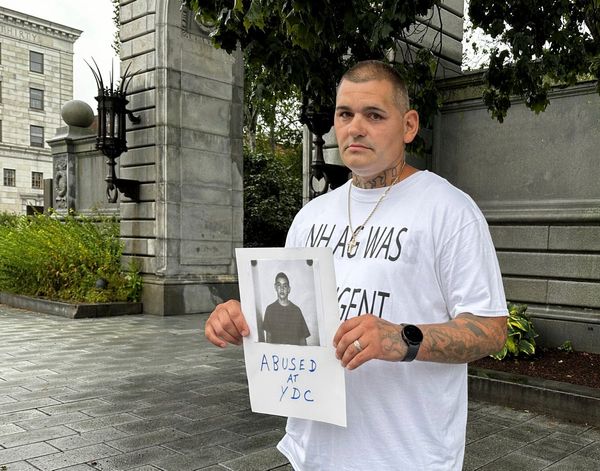
It was news last week that women are having fewer children and at a later age: the Office for National Statistics (ONS) reported that more than half of women in England and Wales don’t have children by the time they are 30. But it hardly felt surprising to me. As a woman without children, at 36, I don’t feel in a minority. Obviously, no one’s friendship circle is statistically significant, but my child-free friends still outnumber those with kids – whether by choice or circumstance.
Yet while there seem to be similar reports published almost every week – here a piece on falling global births, there another on fertility rates dropping during the pandemic – the wider reaction is still often one of dismay and unfair judgment.
Only this month, the actual pope weighed in, criticising potential parents who prefer pets to children. And in response to these latest findings – that in 1971 18% of 30-year-olds had no children, while the figure now stands at 50.1% – some commentators were quick to assume that female fecklessness is the cause. Nick Robinson raised hackles by asking on Radio 4’s Today programme if women are delaying motherhood because “they want more fun before becoming a mum”.
For a start, it’s frustrating that the ONS report only discusses women, as if having a baby is something we do by ourselves. Many women who don’t have or delay having kids do so because they haven’t met the right person or their right person isn’t keen. Without trotting out tired stereotypes about commitment-phobic men, the rise of dating apps has surely led to an increased sense – for men and women – of endless possibility, delaying our willingness to “settle down”.
Which, if it means people don’t settle for rubbish relationships, has got to be good – even if it does contribute to delayed baby-making.
But there’s also a mountain of economic reasons why millennials might think twice about having kids. The 2008 crash means we’ve only ever known job uncertainty; then there was a pandemic. Buying a home, something we’ve been told to do before sprogging, is harder than for previous generations (and, in parts of the country, almost impossible without financial help).
Many people still aren’t earning enough to start a family until later. That old idea of the job for life, steady career progression and decent benefits is a dream for many. Yet with maternity pay feeble, and paternity more so, at least one parent needs to be earning well before kids can seem viable. To keep both jobs, you’ll need to spend an insane amount of money on childcare or have family nearby who can help out (also rare compared with previous generations). As I’ve seen from watching friends, it can seem impossible.
And yet when someone really wants a baby, such rational considerations disappear. Having witnessed women in the grip of a desperate desire to conceive, the meanness of maternity payments may be an anxiety, but not having a baby feels worse. That deep, primal maternal urge triumphs.
So I suspect there’s something more fundamental behind falling birth rates – and that’s choice, alongside the acceptance that, actually, not all of us do experience that maternal urge. This is borne out by the fact that birth rates are falling even in countries with generous parental leave and subsidised childcare, such as Sweden.
Some women know they want kids, some know they don’t; many are ambivalent, a story we tend to hear less about. But it’s a very real experience and one I’ve spent the last few years thinking about: in my own life and while writing a novel exploring how changes in the 20th century affected choices and opportunities for women, in particular, I deliberately wanted to make my heroine share my hesitancy about having children.
In previous generations, societal pressure would tend to steamroller such ambivalence: motherhood was an inevitable destiny for most women. But today, we genuinely have a choice. Women are educated, employed, financially independent and able to access contraception. When we’re not told we must have babies, fewer of us choose to. There’s surely a snowball effect here, too: the more women choose not to have kids, the more normal that seems and the more women see it as an option. Having so many happy, fulfilled, child-free friends has, I’m sure, contributed to the fact that having a baby never felt like the default for me.
And when the genuinely undecided are faced with a real choice, that’s when all those other financial, practical and ethical concerns may help swing the decision.
Still, it is a terrifying decision for the uncertain: you can change your mind about a job, a partner, a house. You can’t change your mind about a baby and the time frame for deciding is finite for women. And if the last several decades have shown us anything, it’s that you simply can’t “have it all”. You can’t have a baby and it not have an impact on the rest of your life – certainly not while financial support for parents is as it is. But it’s also the case that looking after a tiny human simply will – should! – change your priorities and lifestyle.
Let’s be honest: there are enormous gains and losses on both sides. I feel a terrible sadness knowing that I may never feel that all-consuming love and joy parents talk about. But when I think about having a baby, I also feel a terrible terror of losing everything I love in my life. Maybe I would rather choose freedom, energy, time, sleep – yes, why not my own fun?
For women who don’t feel that intense desire to mother, being liberated from expectation and pressure may be the thing that has tipped the scales against having kids. People questioning how much they really want to have children, rather than it being an unquestioned norm, is no bad thing. Being able to make that choice is a cause for celebration, not concern.
Holly Williams’s debut novel, What Time Is Love?, is published in the spring







